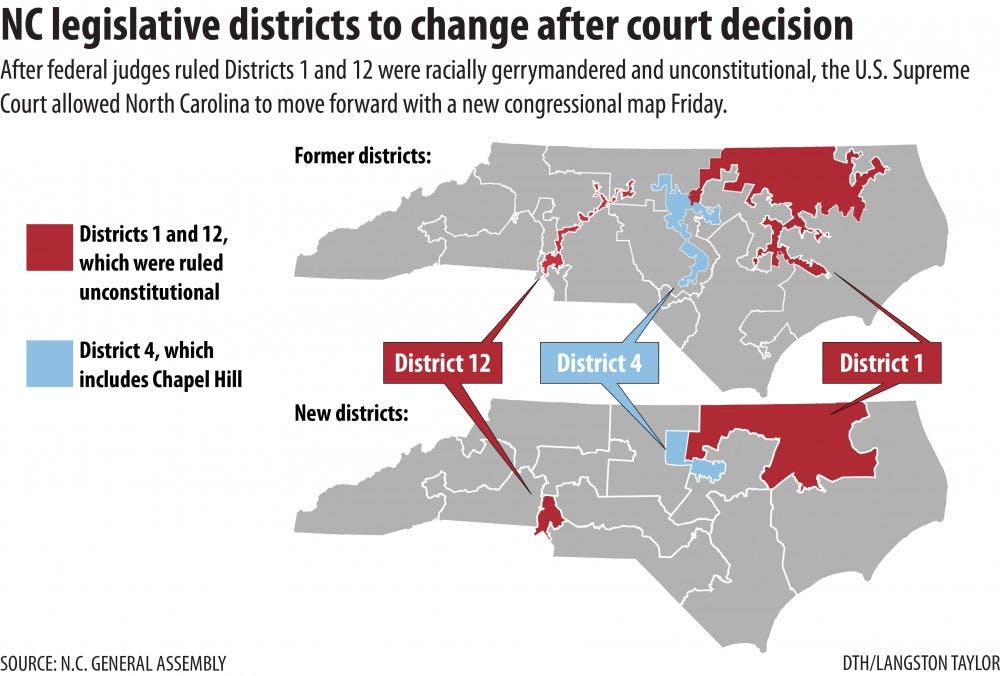And U.S. Rep. David Price, D-N.C., a longtime Chapel Hill resident, could have faced off with Republican incumbent George Holding, R-N.C., in the altered 4th District as a result of the redistricting. But Holding opted to run in the new 2nd District, which includes some of his former constituents.
Price said in a statement that the new congressional districts are not representative of the state.
“The new districts are no more legitimate than the old,” he said.
Voter turnout
Rob Schofield, policy director for N.C. Policy Watch, said the summer date could lead to a low voter turnout.
“A lot of people — heck, a lot of college students — will be home,” he said.
Some have already voted via absentee ballot for the March 15 elections. But Meyer said their votes in the Congressional races will be kept confidential by the local board of elections until the June 7 primary.
But turnout is not predictable in this kind of situation, said Theodore Shaw, a law professor at UNC and director for the school’s Center for Civil Rights.
“In some ways, we’re in uncharted ground this election year — people are very energized and maybe even polarized politically,” he said. “It may be there’s a substantial turnout in June even after the March primaries.”
New representation
Under the new bill, Meyer said there will be a new filing period starting March 16 for those running in the June primary elections.
“Since the maps are all different, what we see as current races are unlikely to remain as such,” he said.
To get the day's news and headlines in your inbox each morning, sign up for our email newsletters.
Candidates for U.S. Congress are not required to live in the district in which they run for office as long as they are state citizens, according to North Carolina law.
Elliot Engstrom, a staff attorney with the conservative-leaning Civitas Institute, said the potential for candidates to represent a district now hundreds of miles away from them could be problematic.
Meyer said the new maps punished U.S. Rep. Alma Adams, D-N.C. — an African-American woman — by drawing her out of her district by close to 100 miles. The new district shifted Adams from her base of support in Greensboro and Winston-Salem to Charlotte.
“I think it’s possible that these new maps will make the congressional delegation both whiter and more male,” he said.
A political gerrymander
Engstrom said the Republicans’ claim that the new map is inspired by partisanship is legal.
“The Republicans have just argued, ‘We didn’t gerrymander for racial reasons. We gerrymandered to keep Republican power,’” he said. “And that’s perfectly fine.”
And despite its poor timing, Pittenger said the map is more cohesive than previous efforts of Democrats.
Calling the redistricting plan partisan is a calculated assessment that plays on the public’s lack of interest or level of cynicism, Schofield said.
“It’s clearly designed to pass a court challenge, but perhaps one will wonder whether it’ll pass the challenge of public opinion,” he said.
state@dailytarheel.com



